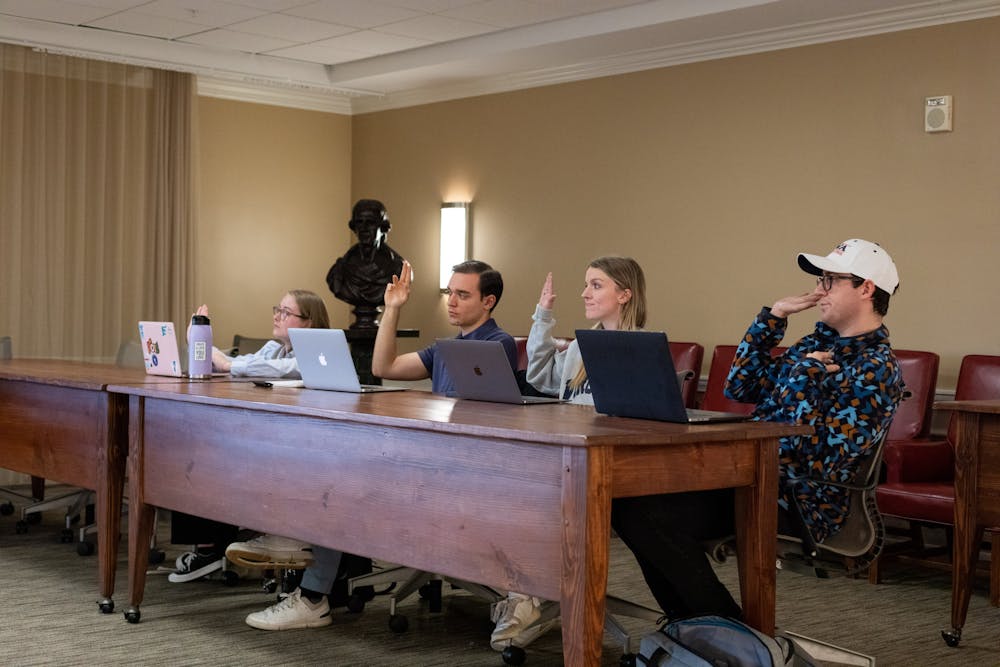Following last spring’s successful passing of an Honor referendum outlining a multi-sanction system, the Committee has been working to detail exactly how this new system will work. This year’s departure from the 180-year-old single-sanction has forced Committee members to fundamentally reimagine the way the Committee operates. This is no small task, and their work thus far has largely been admirable. The reality is, though, that the Committee is still thinking too small. Their recent conversations too closely mirror the problematic fixation on punitive measures that plagued the old system. The Committee must start addressing more systemic questions that engender a complete and total embrace of the case-specific and restorative mindset that the new constitution is supposed to reflect.
Consider their current conversations surrounding the viability of community service as a sanction. There is nothing inherently wrong with asking students to serve the community that their actions have endangered. Broadly speaking, however, community service prioritizes an offender’s retribution over their rehabilitation — it seeks to help students repay an imaginary debt to the Community of Trust while ignoring the realities that drive students to lie, cheat and steal.
Ignoring the realities that underpin cheating is particularly problematic in the age of ChatGPT. With AI, cheating is easier to do and harder to detect — it is not surprising that the Committee has been contemplating the admissibility of AI detection software in Honor trials. We think, however, that these conversations fail to see the bigger picture. ChatGPT and other AI technologies highlight the ultimate futility of simply punishing crimes after they occur. We just aren’t at a stage where we can detect the usage of AI accurately and consistently.
Instead of playing a game they know they cannot win, then, the Committee should dedicate more energy and resources toward preventing cheating before it occurs — towards truly fostering a Community of Trust. The Committee’s multi-million dollar endowment and pre-existing tradition of working across Grounds to educate students make it the perfect institution to start conversations about addressing the systemic issues that lead to cheating. A fundamentally different educational landscape requires a fundamentally different approach to how we think about Honor.
Some on the Committee are already aware of the pressing need to address root causes. In their endorsement interview with The Cavalier Daily’s Editorial Board, Engineering School Representative Alexander Church underscored the need to interrogate why some students cheat. They advocated for using the Committee’s resources to proactively work with professors and students to address the underlying, systemic causes of Honor violations. This sort of holistic thinking is what has been notably absent in recent discourses on the multi-sanction system’s implementation. The student body elected the Honor Committee and passed the multi-sanction referendum not to perpetuate old patterns of punitive thinking but to intervene in contemporary debates regarding honor violations, their punishments and their causes.
It is important to acknowledge that the Committee is delivering much-needed fundamental reforms to our Honor system. We write this editorial not to minimize or disparage its efforts but rather to call on our representatives to adequately harness the wide range of opportunities their new constitution affords to them. The radical power of the multi-sanction system lies not in its ability to dole out punishments but in its flexibility to creatively address the very circumstances which produce lying, cheating and stealing. By creating space for rehabilitative sanctions, the new constitution gives the Committee the necessary structure to figure out why students violate the honor code and use its work to address these underlying issues which lead to problematic behaviors.
As a community, we like to tout Honor as something that is unique part to the University experience. However, the reality is that many universities across the country have honor systems that are also run by students. Many universities have honor systems that dole out punishments based on the severity of the crime committed. If we are truly committed to crafting a system that sets the University apart, then we must ask questions that don’t have easy answers. We must realize that sanctions — in and of themselves — are not solutions. If we truly care about having an exemplary Honor system, then we must think more radically about the work we can do as students to truly create a Community of Trust.
The Cavalier Daily Editorial Board is composed of the Executive Editor, the Editor-in-Chief, the two Opinion Editors, their Senior Associates and an Opinion Columnist. The board can be reached at eb@cavalierdaily.com.







